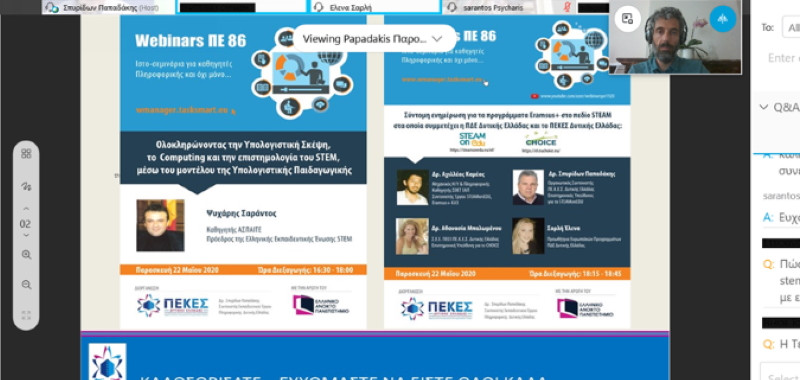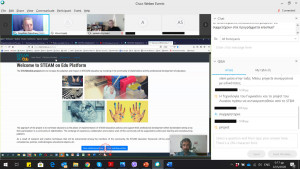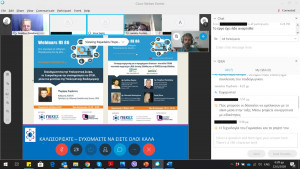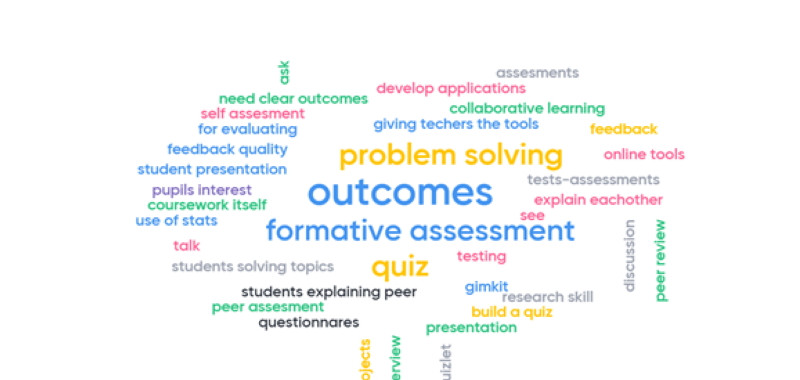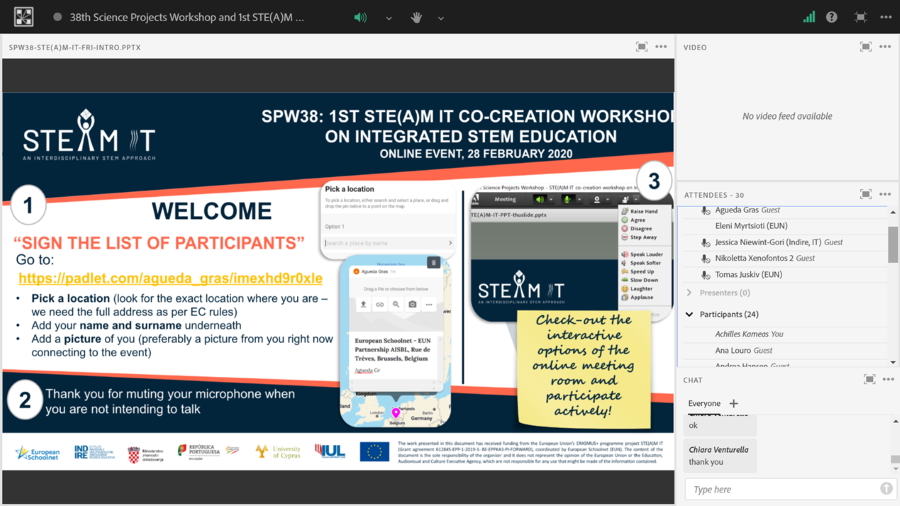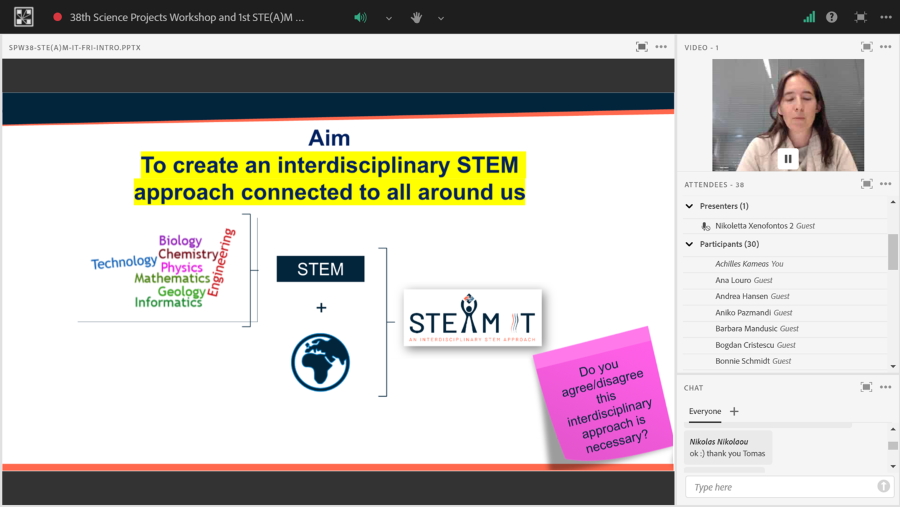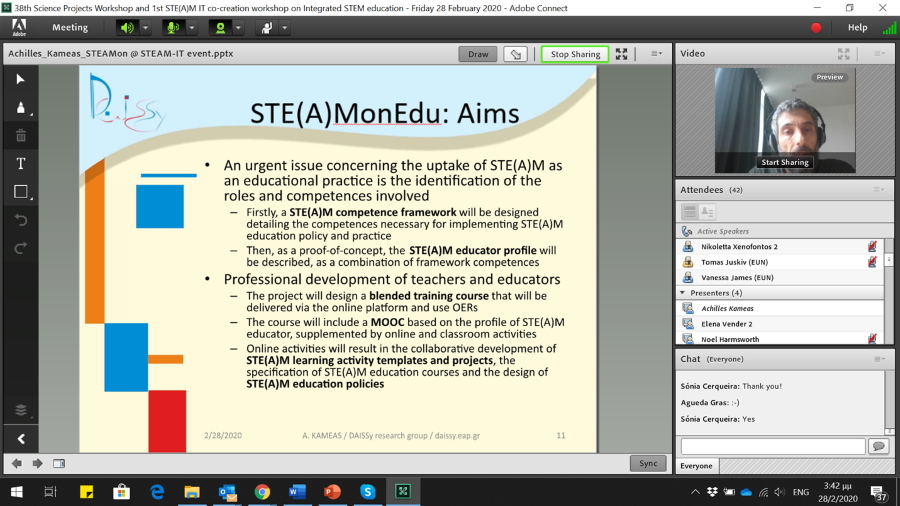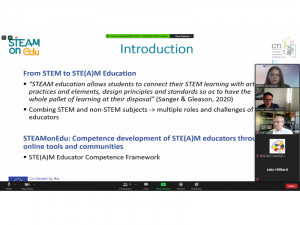 On 22 June, at the European Distance and e-Learning Network (EDEN) Conference, Natalia Spyropoulou and Achilles Kameas, members of the STEAMonEdu project team of DAISSy Research Group, presented the scientific paper “Methodology for the Development of a Competence Framework for STE(A)M Educators”.
On 22 June, at the European Distance and e-Learning Network (EDEN) Conference, Natalia Spyropoulou and Achilles Kameas, members of the STEAMonEdu project team of DAISSy Research Group, presented the scientific paper “Methodology for the Development of a Competence Framework for STE(A)M Educators”.
The EDEN2020 is an annual conference organized by European Distance and e-Learning Network and aims to maximise the potential to exchange academic and professional experience, to promote effective navigation in the field, and improve the quality and depth of information available to the sectors concerned. This year, the conference focused on “Inspiring digital education for the next STE(A)M student generation” and took place online, due to the pandemic.
The STE(A)MonEdu Project aims to increase the adoption and impact of STE(A)M education by investing in the community of stakeholders and the professional development of educators. Focusing on the professional development of educators, it aims firstly to compile a competence framework for STE(A)M educators and then design appropriate training offers.
Τhe presented paper summarized, a brief overview concerning the competency-based perspective, in order at first, to identify the challenges of and the current research within this topic for STE(A)M education and then to provide the methodology for the development of the Competence Framework for STE(A)M Educators, based on a modified Delphi technique where educators take part during the development phases.
After the presentation a fruitful discussion was followed, where attendees asked more information about the activities and future actions related to STEAMonEdu project.
You can find out more about STEAMonEdu and DAISSy Research Group activities here:
- Website : http://daissy.eap.gr/en, https://steamonedu.eu/
- Facebook : STEAMonEdu Project
- Linkedin : https://www.linkedin.com/in/daissyresearchgroup/
- Twitter : @daissy_research @STEAMonEdu
- Instagram :@daissy_researchgroup

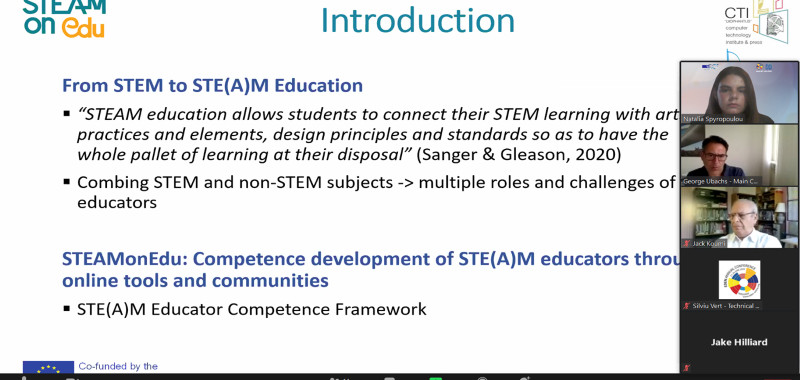
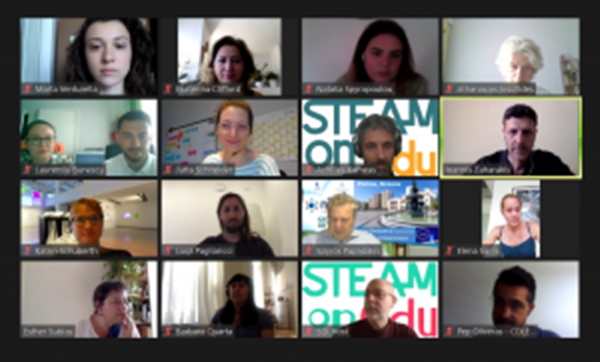
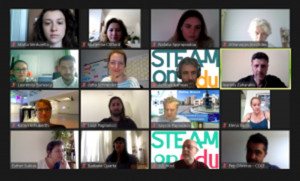 Η ερευνητική ομάδα DAISSy συμμετείχε στην 2η συνάντηση του έργου “STEAMonEdu: Competence development of STE(A)M educators through online tools and communities”, η οποία έλαβε χώρα μέσω διαδικτύου στις 25-26 Ιουνίου 2020. Το έργο
Η ερευνητική ομάδα DAISSy συμμετείχε στην 2η συνάντηση του έργου “STEAMonEdu: Competence development of STE(A)M educators through online tools and communities”, η οποία έλαβε χώρα μέσω διαδικτύου στις 25-26 Ιουνίου 2020. Το έργο 